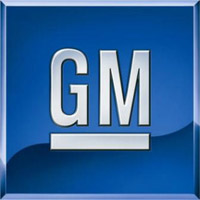GM decides to keep Opel, scrap Magna deal
 Washington - General Motors' board voted Tuesday to hold onto European division Opel rather than sell a majority stake to Canadian-Austrian firm Magna, ending months of uncertainty and dashing the hopes of German officials.
Washington - General Motors' board voted Tuesday to hold onto European division Opel rather than sell a majority stake to Canadian-Austrian firm Magna, ending months of uncertainty and dashing the hopes of German officials.
GM said its decision was based on a better outlook for the company as the world economy recovers from recession. GM earlier Tuesday reported a 4.1-per-cent rise in sales from the year-ago period, its first annual increase in 21 months.
"Given an improving business environment for GM over the past few months, and the importance of Opel-Vauxhall to GM's global strategy, the GM board of directors has decided to retain Opel and will initiate a restructuring of its European operations in earnest," the Detroit-based carmaker said in a statement.
Opel, which also includes Britain's Vauxhall, is producing modern, highly fuel efficient cars that are vital to GM's future in the United States, car industry experts say.
"This was deemed to be the most stable and least costly approach for securing Opel/Vauxhall's long-term future," GM chief executive Fritz Henderson said.
The decision provoked anger in Germany, where Chancellor Angela Merkel has lobbied since May for the sale of 55 per cent of Opel to Magna and its Russian partners, Sberbank and Gaz autos.
Henderson said that GM would directly pursue its "already significant business" in Russia and resume working with Gaz to modernize and jointly develop the Russian vehicle market.
In Wiesbaden, Germany, the premier of the state of Hessen, home to a large number of Opel workers, expressed "shock" and "anger" at the decision.
"In light of the negative experiences of the past years with GM's business strategy, I am very worried about the future of this firm and its jobs," Roland Koch said in a statement distributed Tuesday evening.
Koch said he expected GM to repay a 2.2-billion-dollar bridge loan from the German government by November 30. The loan is keeping Opel's operations going in Germany.
About half of Opel's 50,000 workers are in Germany, with the rest in Britain, Spain, Poland and Belgium.
In September, the GM board had decided to go with the Magna deal, based in part on the pledge of 4.5 billion euros (6.8 billion dollars) from the German government to support the deal.
Last week, the European Union's competition regulators raised a red flag that the GM-Magna deal may have been unduly influenced by political pressure from Berlin, which appeared to be arm-twisting GM by limiting its money offer to the Magna bid.
That move prompted German Economics Minister Karl-Theodor zu Guttenberg to write a quick letter of reassurance to GM that Berlin's financial support for Opel was not solely for the Magna-led bid.
It sparked speculation that the GM board could either revert back to another bid from Belgium-based RHJ International or decide to keep all of Opel for itself.
GM's Henderson said he understood how the "complexity and length of this issue has been draining for all involved." The decision was the best long-term solution for customers, employees, suppliers and dealers.
"GM will soon present its restructuring plan to Germany and other governments and hopes for its favourable consideration," Henderson said.
He said the GM plan would entail total restructuring expenses of about 3 billion euros (4.4 billion dollars), "significantly" less than all the other bids.
Henderson noted that GM's overall financial health and stability had "improved significantly" over the last few months. GM emerged from a giant bankruptcy in record time this summer, with the pledge of 50 billion dollars in help from the US government, which has taken a 60-per-cent ownership stake in the reorganized company. (dpa)